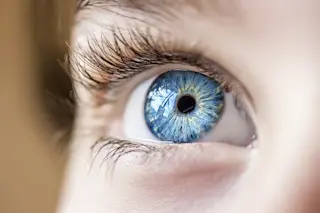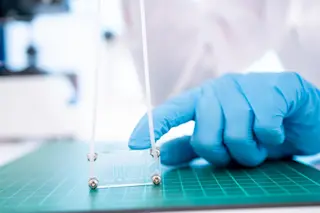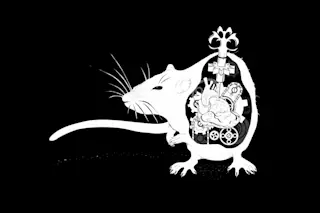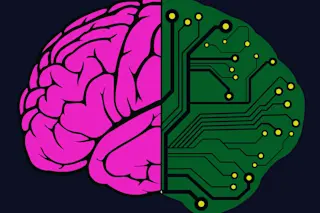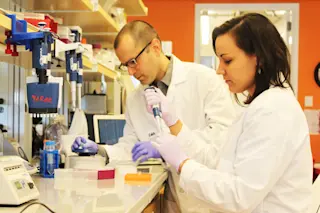(Credit: Victoria Shapiro/Shutterstock) A decade-old technique that allows researchers to control brain function in lab animals could partially restore sight to the blind. In a trial sponsored by RetroSense Therapeutics, a startup company in Ann Arbor, Michigan, doctors will inject a harmless virus loaded with DNA from photoreceptive algae into the eyes of 15 patients suffering from retinitis pigmentosa. The experimental procedure represents the first human test of optogenetics, which is a technique that genetically modifies neurons to make them responsive to light. Doctors from the Retina Foundation of the Southwest will perform the procedure, and attempt to transfer the job duties of photoreceptor cells to different cells in the eye to restore sight.
Before our brains build a visual image of our world, a chain of cells in our eyes must convert light into electrical signals that are processed in the brain. Photoreceptor cells in the retina represent the ...


